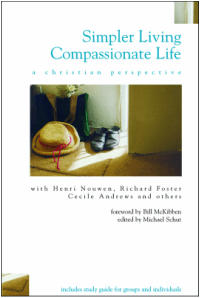Care for Creation: A Call for Ecological Conversation is a collection of Pope Francis’s writings and words which give background to the direction of Laudato Si’. Grouped into ten chapters, this book offers a very accessible introduction to the Pope’s understanding of the call of the church to creation care.
He frames the current struggle as one guided by a lust for money’s idol and the globalization of indifference. He calls each reader to action, not blaming them for the global issues of poverty and climate change, but implicating them as necessary actors in the solutions. He recognizes the ecological crisis as related to the inner crisis of belief and identity experienced globally. Pope Francis argues that we all must become part of the solution, taking faith-inspired action to care for our world and those in it. Far from arguing that only the church or individuals can create lasting change, he believes that there must also be systematic change in the government and economic structures which govern our world.
For those who are intimidated by Laudato Si’ or are looking for more of Pope Francis’ reflections on creation care and ecology, this book in short sections frames the call to care for the world and those who live in it.
This book can be found on Amazon, major book retailers, and your favorite independent bookstore.






